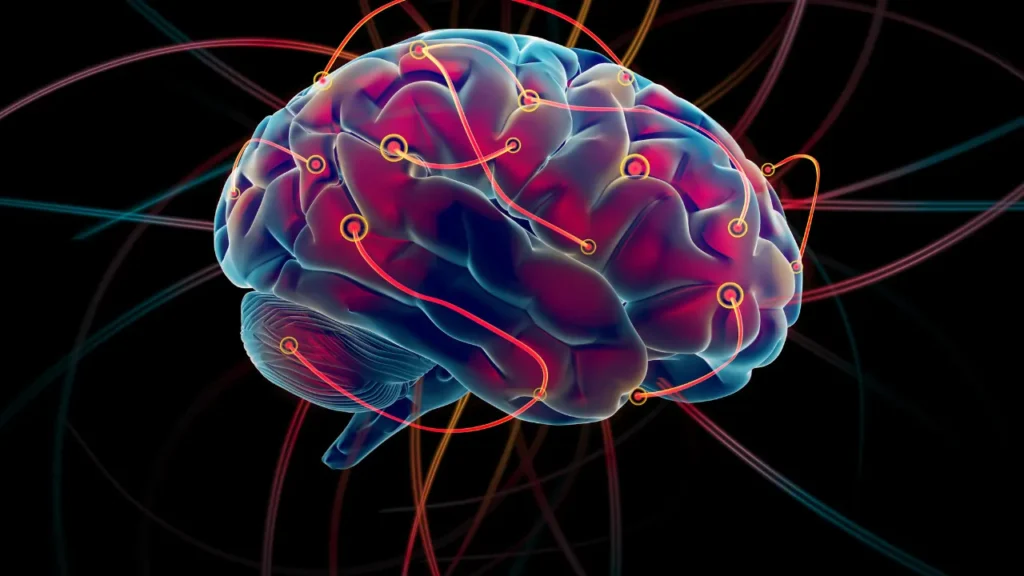Sitostanol is a phytosterol that shares structural similarities with cholesterol. It has drawn interest due to its possible advantages in improving cognitive abilities like attentiveness, concentration, and general mental clarity. This substance, which occurs naturally in plant sources including nuts, seeds, and vegetable oils, has a special chemistry that enables it to interact with human physiology in ways that can improve cognitive function. This article explores the many facets of sitostanol, particularly in its relation to nootropic supplementation. It covers its chemical makeup, health advantages, recommended dosages, adverse effects, and possible interactions with other substances.
You May Also Like:
ONNIT Supplements Antarctic Krill Oil Reviewed: A Leading Memory Support Supplement
Water Fennel: Benefits, Dosage, Side Effects, Drug Interactions, And Other Important Information
Sitostanol: Benefits, Dosage, Side Effects, Drug Interactions, and Other Important Information is an original (NootropicsPlanet) article.
Nature of Sitostanol
Natural sterols such as sitostanol are saturated phytosterols that are mostly present in diets derived from plants, such as nuts, seeds, legumes, and vegetable oils. Sitostanol chemical makeup does not contain a double bond like that of beta-sitosterol, its unsaturated counterpart, hence, it is more hydrophobic than beta-sitosterol. This influences its physiological impacts and health benefits, especially those linked to lipid metabolism and cognitive processes, are greatly influenced by this structural difference.
Health Benefits of Sitostanol
Cholesterol-Lowering Effect: Sitostanol’s most well-documented health benefit is its ability to lower blood cholesterol levels. By mimicking cholesterol’s structural configuration, sitostanol competes with dietary cholesterol for absorption in the intestines. This competition effectively reduces the overall amount of cholesterol absorbed by the body, leading to a decrease in serum low-density lipoprotein (LDL) cholesterol levels, which are often referred to as “bad” cholesterol. Regular consumption of sitostanol-enriched foods can lead to significant reductions in LDL cholesterol, thereby lowering the risk of cardiovascular diseases.
Cardiovascular Health: The cholesterol-lowering properties of sitostanol contribute directly to better cardiovascular health. By reducing LDL cholesterol levels, sitostanol helps prevent the formation of atherosclerotic plaques in the arteries which is a key factor in the development of heart disease and stroke. This protective measure against cardiovascular diseases underscores the broader health benefits of sitostanol, beyond its immediate impact on cholesterol levels.
Potential Cognitive Benefits: Although research regarding the cognitive ability of sitostanol is still ongoing, there are a few proposed mechanisms that can show the potential of this supplement. The proposed mechanisms for these effects include improved cholesterol metabolism and the maintenance of cell membrane integrity, which are critical for optimal brain function. The structural similarity of sitostanol to cholesterol suggests it could play a role in modulating membrane fluidity and, consequently, neurotransmitter signaling and brain health.
Antioxidant and Anti-inflammatory Effects: Preliminary studies suggest that sitostanol may possess antioxidant and anti-inflammatory properties, which could further contribute to its cardiovascular and cognitive health benefits. By combating oxidative stress and inflammation, sitostanol could help protect against the development of chronic diseases and support overall health and well-being.

Chemistry of Sitostanol
Understanding the chemical characteristics and biological interactions of phytostanol, a bioactive molecule categorized under phytosterols, is crucial due to its structural resemblance to cholesterol. Structural resemblance often leads to similar functions being executed as they often have similar receptor sites to bind to. The chemical name of sitostanol is stigmastanol, and it has a sterol nucleus, which is a complicated structure with four rings that is shared by all sterols, including cholesterol.
Three cyclohexane rings and one cyclopentane ring fused together in a certain arrangement make up this nucleus. Saturation of the double bond in the sterol nucleus’s B ring transforms the molecule from an unsaturated to a saturated state. As mentioned, this state sets sitostanol apart from its progenitor, beta-sitosterol. Its hydrophobic character is enhanced by this saturation, which has a major impact on its solubility and ability to interact with biological membranes.
The molecular formula of sitostanol is C_29H_52O, reflecting its composition of 29 carbon atoms, 52 hydrogen atoms, and a single oxygen atom, the latter being part of the hydroxyl group (-OH) attached to the sterol nucleus. This hydroxyl group is critical for the compound’s functionality, as it enables sitostanol to engage in hydrogen bonding and other interactions with biomolecules. The saturation of sitostanol not only influences its chemical reactivity and physical properties but also its biological activity, especially in relation to lipid metabolism and membrane fluidity.
Physiological Mechanism of Action of Sitostanol
In the small intestine, sitostanol competes with dietary cholesterol for absorption. It does this by absorbing into lipid molecules called micelles, which facilitate the breakdown and absorption of lipids, thereby dislodging cholesterol. The competition between two compounds effectively lowers the quantity of cholesterol taken into the bloodstream since sitostanol is less well absorbed by the intestines than cholesterol. Because less cholesterol is absorbed, the liver produces more LDL (low-density lipoprotein) receptors, which improve LDL cholesterol removal from the blood and thus lower total cholesterol levels.
Beyond its impact on cholesterol metabolism, sitostanol’s influence on cell membrane composition and fluidity presents additional pathways for cognitive and physiological benefits. Sitostanol may affect the function of membrane-bound proteins, including receptors, ion channels, and enzymes by being incorporated into neuronal cell membranes. These alterations could modulate neurotransmitter release and uptake, directly impacting cognitive functions such as memory, learning, and alertness. The exact mechanisms through which sitostanol might influence neuronal activity and cognition remain an area of ongoing research, highlighting the complex interplay between dietary components, cellular biochemistry, and brain function.

Optimal Dosage of Sitostanol
The best dosage of sitostanol to improve cognitive function is difficult to determine since it must strike a balance between safety and efficacy. A total of 1.5 to 3 grams of sitostanol per day have been used in studies investigating the drug’s ability to decrease cholesterol. Nevertheless, the ideal dosage for advantages, especially with regards to cognition improvement has not been well studied and may differ depending on personal characteristics like preexisting cognitive function, food preferences, and general health. If you are planning to take sitostanol supplements, you should form a customized strategy advised with medical supervision.
Side Effects of Sitostanol
When ingested in quantities usually present in food, sitostanol is generally regarded as safe. High doses could be dangerous as it might lead to gastrointestinal problems like nausea, diarrhea, and constipation. Although this impact is not well-documented at nutritional levels, sitostanol may theoretically interfere with the absorption of fat-soluble vitamins due to its mechanism of lowering cholesterol absorption.

Potential Substance Interactions with Sitostanol
Caution is warranted since sitostanol may interact with other drugs and supplements, especially those that influence metabolism or cholesterol levels. When statins or other cholesterol-lowering drugs are used with sitostanol, their effects may be amplified and may result in abnormally low cholesterol. Before incorporating sitostanol into a regimen, as with any supplement, it is imperative to speak with a healthcare provider, especially if you are on medication or have a history of medical issues.
Best Responsible Use of Sitostanol
Adhering to responsible usage is crucial for individuals who wish to utilize sitostanol for cognitive enhancement. This entails following suggested dosages with a balanced lifestyle. This is because the cognitive effects of sitostanol may be complemented by a well-balanced diet high in fruits, vegetables, whole grains, and healthy fats. Important elements of a comprehensive strategy for improving cognitive function include stress reduction, appropriate sleep, and regular physical activity.
Sitostanol:
Conclusion
In conclusion, this nootropic supplement known as Sitostanol is derived from a plant sterol compound. Its structural similarity to cholesterol improves its ability for cognitive advancement. The physiological impacts are also linked to the biochemical structure. Although sitostanol can be found in many foods such as nuts, seeds, and vegetable oil, supplementation can effectively improve the levels of this compound which is suitable for working adults. However, you must remember that this supplement should not be used in place of a balanced diet. You should also consult a healthcare professional to determine the suitability of Sitostanol supplementation.

References:
- Phytosterols: Potential Metabolic Modulators in Neurodegenerative Diseases. Retrieved from: https://www.ncbi.nlm.nih.gov/pmc/articles/PMC8618769/
- Sitostanol – Uses, Side Effects, and More. Retrieved from: https://www.webmd.com/vitamins/ai/ingredientmono-862/sitostanol
- Phytosterols: Nutritional Health Players in the Management of Obesity and Its Related Disorders. Retrieved from: https://www.mdpi.com/2076-3921/9/12/1266
Important Note: The information contained in this article is for general informational purposes only, and should not be construed as health or medical advice, nor is it intended to diagnose, prevent, treat, or cure any disease or health condition. Before embarking on any diet, fitness regimen, or program of nutritional supplementation, it is advisable to consult your healthcare professional in order to determine its safety and probable efficacy in terms of your individual state of health.
Regarding Nutritional Supplements Or Other Non-Prescription Health Products: If any nutritional supplements or other non-prescription health products are mentioned in the foregoing article, any claims or statements made about them have not been evaluated by the U.S. Food and Drug Administration, and such nutritional supplements or other health products are not intended to diagnose, treat, cure, or prevent any disease.


